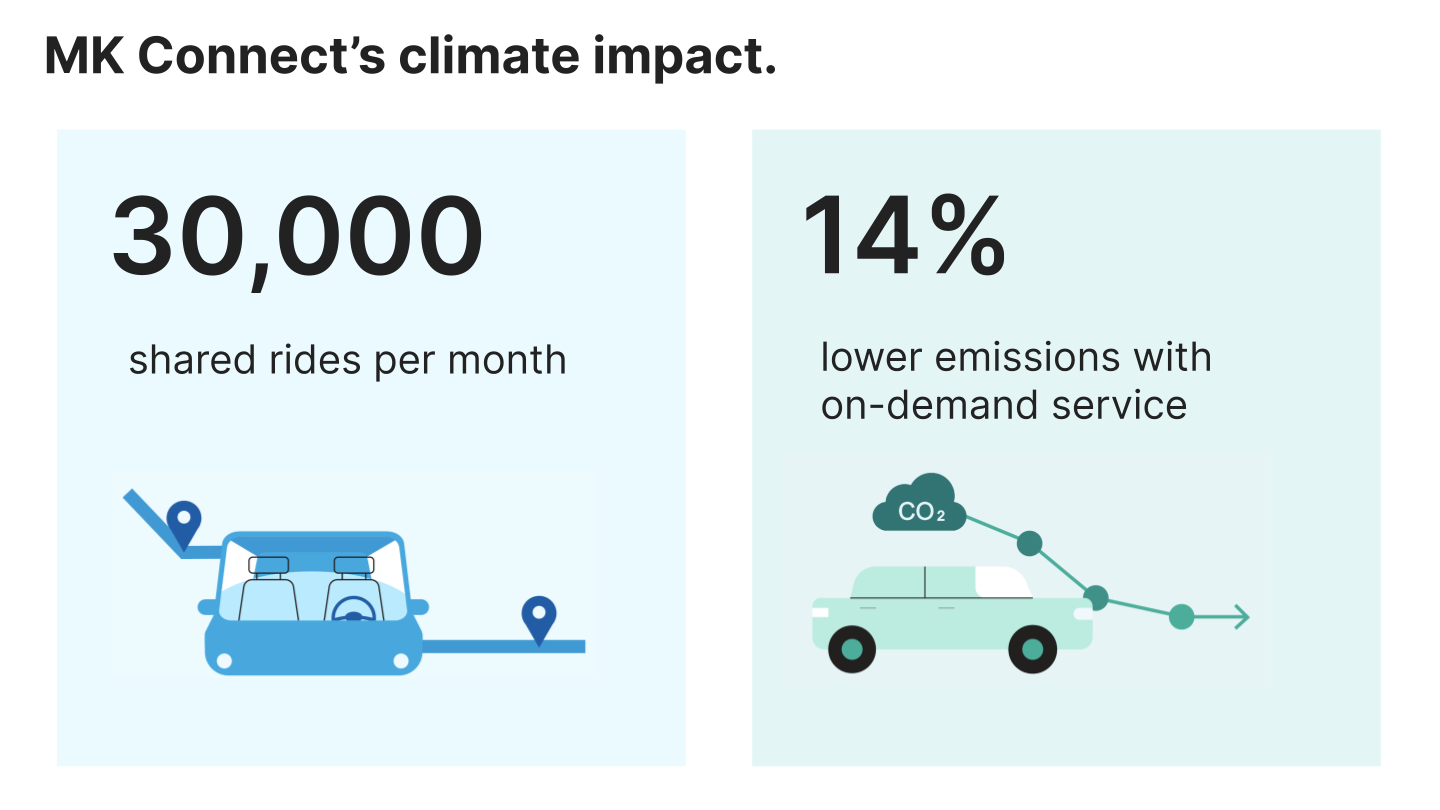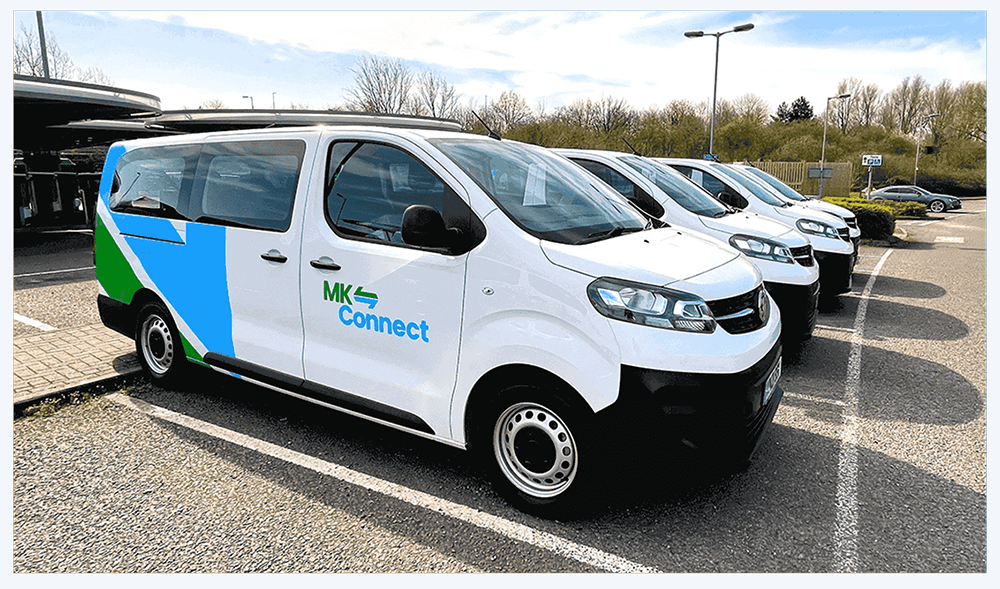The Milton Keynes Council took a bold step to remake its city’s transport network in April 2021: it replaced underperforming subsidised bus routes with digital demand-responsive transport, or DDRT. The Council expected that the move would save money — to the tune of £1m annually — but also hoped to improve service quality for residents who depended on subsidised routes with weekday headways of 60 minutes. On top of it all, they wanted to make these seismic changes in a sustainable way, by running the DDRT service with majority electric vehicles (EVs).
On all accounts, MK Connect has succeeded: it is a cost-efficient service with an average wait time under 30 minutes, a significant improvement over previous fixed-route headways. But most dramatically, MK Connect has demonstrated the potential for shared demand-responsive services to actually reduce carbon emissions in the cities in which they are deployed.
Via’s data scientists estimate that in 2021, the availability of shared, demand-responsive service reduced emissions in Milton Keynes by 14% when compared with previously available transport modes.
 Using passenger survey data and transport density to determine the mode — private car travel, public transport, taxi and ride-hailing, walking or biking — likely replaced by each MK Connect trip, our team calculated the change in emissions-per-journey as a result of that modal shift. A bike trip replaced with a demand-responsive trip (even in an EV) would lead to an emissions increase, but a conventional bus trip replaced with a demand-responsive EV trip would lead to an emissions reduction. This analysis also takes into account a range of other factors, such as the empty miles DRT vehicles drive in between trips, the fuel economy of different vehicles and electricity sources, and the time private vehicles spend looking for parking.
Using passenger survey data and transport density to determine the mode — private car travel, public transport, taxi and ride-hailing, walking or biking — likely replaced by each MK Connect trip, our team calculated the change in emissions-per-journey as a result of that modal shift. A bike trip replaced with a demand-responsive trip (even in an EV) would lead to an emissions increase, but a conventional bus trip replaced with a demand-responsive EV trip would lead to an emissions reduction. This analysis also takes into account a range of other factors, such as the empty miles DRT vehicles drive in between trips, the fuel economy of different vehicles and electricity sources, and the time private vehicles spend looking for parking.
In Milton Keynes, demand-responsive passengers have been drawn to the service as well as away from private cars and solo rides with taxis or ride-sharing, leading to an overall emissions reduction. Passengers now have higher-quality options and the city is greener — an unqualified win for the Council.




